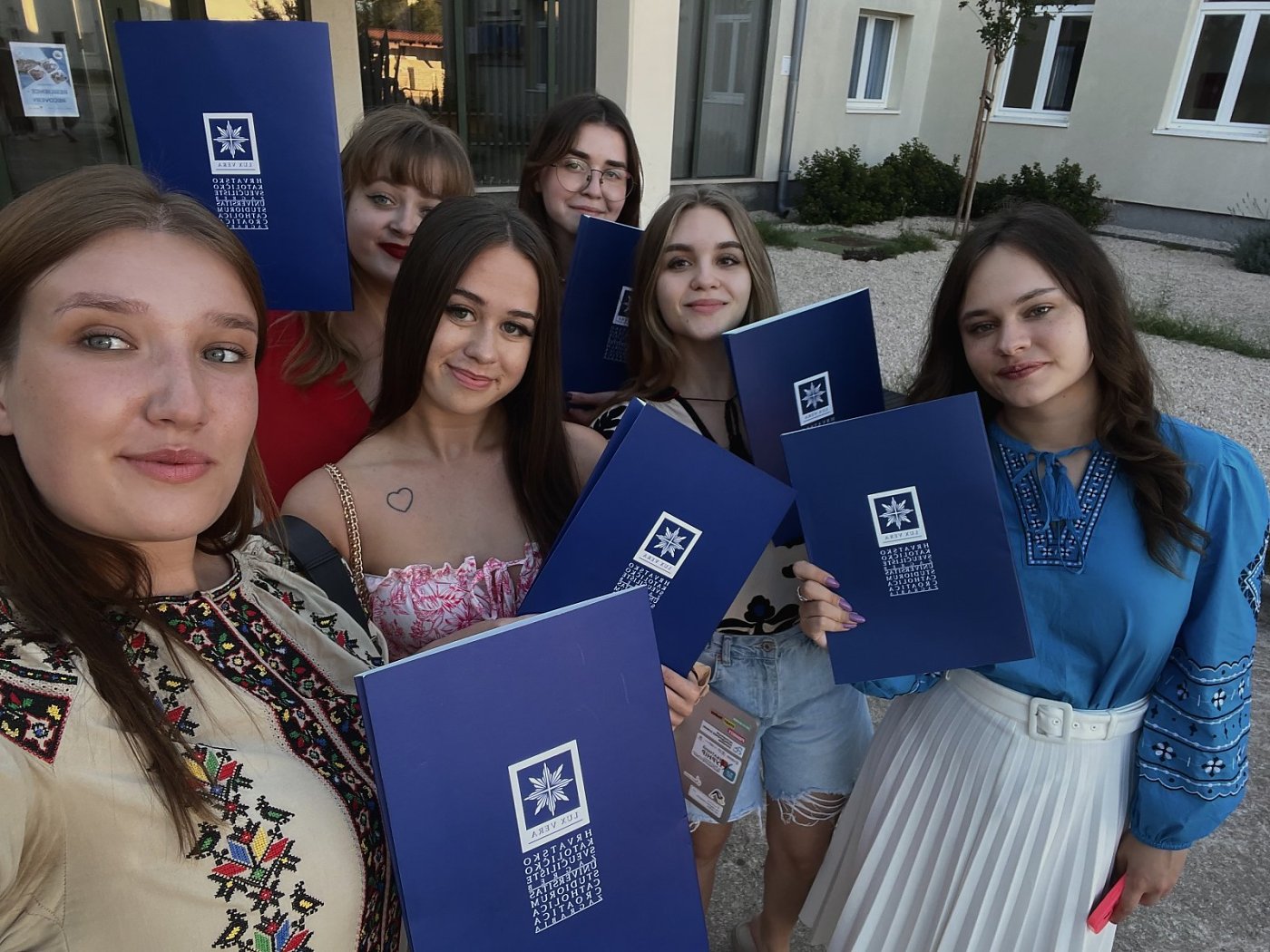What was this year's Summer School of Catholic universities like?

I remember the Resilience and Recovery Summer School in Šibenik with great joy. During the two weeks I gained a lot of new experiences and created valuable memories. I especially appreciated meeting different people - not only students from the Catholic University in Ružomberok, but also participants from other countries. I had the opportunity to get to know students from Georgia, Croatia, Poland, Hungary and the United States (universities associated in the Catholic Universities Partnership). Despite different cultural practices and different life experiences, we were able to develop deep friendships that still last.
During the internship we had the opportunity to visit several important cultural and natural sites around Šibenik, such as Krka National Park, St. Nicholas Fortress and St. James Cathedral. The atmosphere of these places was unique and the region of Šibenik had a very peaceful and pleasant effect on me. Getting to know Croatia was an extremely valuable experience for me, which I appreciate immensely.
The summer school included expert lectures on the topic of resilience, from which we all benefited. I was particularly interested in the lectures given by a neuropsychologist from the University of Notre Dame, who explained in detail the mechanisms of resilience, the factors influencing its development and the ways in which it manifests itself. A quote that particularly resonated with me was one that compared the formation of a pearl to the process of coping with challenging situations, "When a grain of sand gets into an oyster and is so irritating that the oyster has to defend itself by secreting a pearly substance, this defensive reaction produces a material that is hard, shiny, and precious."
In addition to the academic insights, the opportunity to see the different ways in which the Ukrainian participants deal with the realities of war was particularly stimulating for me. Each of them approached it differently - some used humour as a defence mechanism, others experienced intense anxiety, others chose to actively help and set up their own organisations to support their community. This diversity of responses allowed me to better understand the consequences of crisis situations and individual strategies for coping with trauma.
It also confronted me with the stark contrast between the reality of war and how we perceive it in a safe environment outside of it. During the discussions, I realised that many of my Ukrainian classmates could not understand the situation we commonly see in Slovakia - that some refugees in our country live relatively carefree lives and their lifestyle does not reflect the image of a war-torn country. On the contrary, for many of the people I met in Croatia, everyday life was challenging. This difference in perception of reality gave me valuable insight into how different life circumstances shape our attitudes, values and experiences of crisis.
Another positive aspect of the summer school was the atmosphere created by the organisers and speakers. They were extremely friendly and open people who were genuinely interested in us not only academically but also personally. They were not afraid to discuss different topics with us and their approach created an environment full of energy and enthusiasm. You could sense that they were passionate about their work and genuinely fascinated by the topic of resilience. Their enthusiasm rubbed off on us and they made the summer school not only of professional value, but also a friendly and supportive atmosphere in which we all felt welcome.

This experience was not only academically stimulating but also personally enriching for me. It provided me with a space to reflect on my own development and motivated me to continue my studies. The pleasant environment, the sea and the sunny weather were just a nice bonus to this extremely positive experience!

